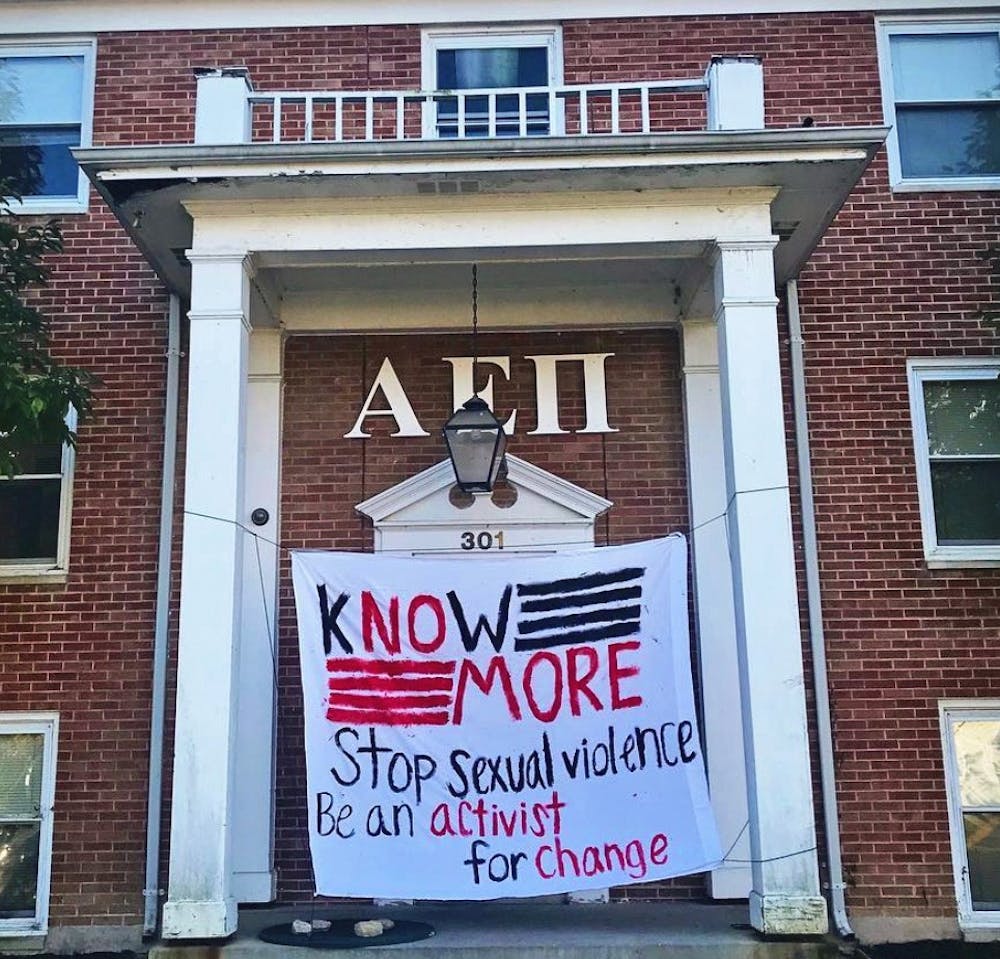There is no question that sexual assault is a problem on college campuses. As Miami enters its tenth week of the semester, 11 sexual assaults have already been reported. This does not include assaults that could have potentially occured, but have not been documented.
Other institutions, such as Ohio University, have also experienced a wave of sexual assaults on their campus with more than a dozen assaults being reported within the first month of their school year. Yet, OU's response to these assaults stands out from others.
In September, students at OU organized a rally that drew in hundreds of people who marched through Court Street in downtown Athens in protest of the sexual assaults taking place at their university. In addition to the rally, the university's fraternities and sororities have made an effort to bring awareness by hanging sheet signs on their organization's houses.
"No does not mean convince me" and "Consent is Bae" are just a few of the messages displayed outside of the fraternity homes at OU. A tweet by OU's Interfraternity Council displaying the banners has received over 24,600 retweets and 91,000 likes.
Their actions have inspired other universities like Ball State and Kent State University to display banners of their own to bring awareness to the assaults taking place on their campuses.
For a while, some students have wondered if the fraternities at Miami would participate in this movement. As of this week, a few fraternities, such as Pi Kappa Pi, Alpha Epsilon Pi and Beta Theta Pi, have displayed their own banners outside of their chapter houses, but not everyone has been impressed with these efforts.
"I feel like we're a little late to the game," said Julia Koenig, President of Feminists Working On Revolutionary Democracy (F-Word). "I think there needs to be a lot of collaboration within the IFC [The Interfraternity Council] community and getting people on the same page."
The banners were first displayed on Oct. 23, the Greek Day of Action. The Greek Day of Action is a part of the larger It's On Us Fall Week of Action campaign which runs Oct. 21-27. The campaign started in September of 2014 under the Obama administration to bring awareness, and potentially bring an end, to sexual assault on college campuses.
All week, representatives of the group have been stationed in Armstrong Student Center attempting to have students sign a pledge which shows that they "commit to helping others create a culture of consent, bystander intervention and survivor support."
There's been speculation on social media over whether the fraternities were waiting until the right time to participate in this movement or if they were coerced into doing so.
Miami University's official instagram page posted a photo of a few of the banners earlier this week. The comments left under the photo were mostly negative, with one of the commenters posting that the banners "might've meant a lot more if they weren't forced to put them up." Another comment stated, "actions speak louder than words..."
Fraternities are not the only institutions displaying banners around campus. There are two banners hung on Miami's North quad, where one of the 11 sexual assaults this semester was reported. One hangs on the front of Hepburn Hall which reads, "Enthusiastic Consent is the ONLY Consent." The other hangs beside Martin Dining Hall and reads, "No means No. It's on You, It's On Me, It's on Us."
Enjoy what you're reading?
Signup for our newsletter
"I think it's a great first step that they're placing the signs because it helps to challenge toxic norms," said Nadia Dawisha, a Miami alum and sexual assault activist. "I think the next step is to go into fraternities and other groups on campus and challenge what people think on sexual assault."
Dawisha feels many people have untrue preconceptions or misconstrued images of what sexual assault is. She believes this is why many people don't recognize or believe they could ever be a perpetrator or victim of sexual assault. She also believes the online sexual assault prevention course that freshman students are required to take before the beginning of the school year is not enough. Things like bystander prevention should also be included, Dawisha said.
The concept of bystander intervention is used on campuses across the country to show students how to behave and potentially prevent an act of sexual assault from happening to a person other than themselves. Students are taught to recognize the signs and how to intervene in situations where someone feels uncomfortable with the sexual advances of another person.
"Requiring bystander intervention for every student beyond what is online is very important," said Dawisha. "It can empower students to understand and know how to intervene, and can educate them on sexual assault."
lumpkibm@miamioh.edu




